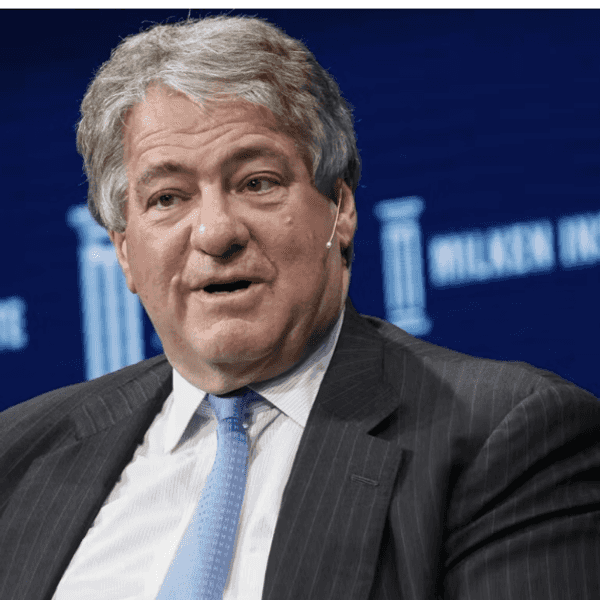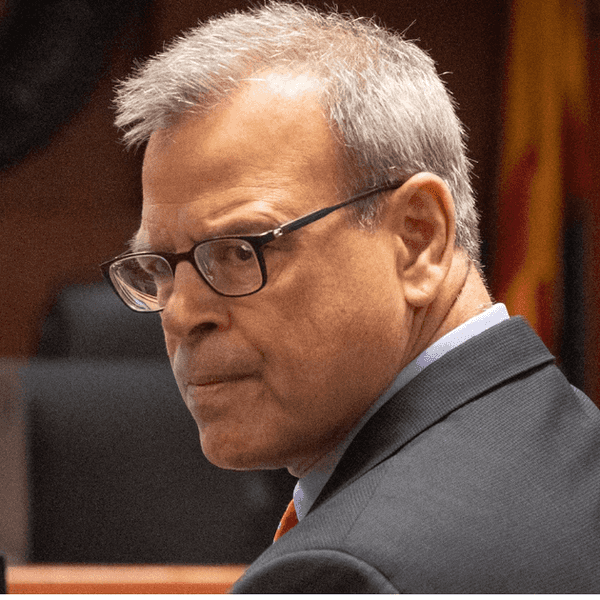Why Accountability In America Is Gone — And How To Restore It

Reprinted with permission from TomDispatch
Whether you consider the appalling death toll or the equally unacceptable rising numbers of Covid-19 cases, the United States has one of the worst records worldwide when it comes to the pandemic. Nevertheless, the president has continued to behave just as he promised he would in March when there had been only 40 deaths from the virus here and he said, "I don't take responsibility at all."
In April, when 50,000 Americans had died, he
praised himself and his administration, insisting, "I think we've done a great job." In May, as deaths continued to mount nationwide, he insisted, "We have met the moment and we have prevailed." In June, he swore the virus was "dying out," contradicting the views and data of his just-swept-into-the-closet coronavirus task force. In July, he cast the blame for the ongoing disaster on state governors, who, he told the nation, had handled the virus "poorly," adding, "I supplied everybody." It was the governors, he assured the public, who had failed to acquire and distribute key supplies, including protective gear and testing supplies.
All told, he's been a perfect model in deflecting all responsibility, even as the death toll soared over 150,000 with more than four million cases reported nationwide and no end in sight, even as he assured the coronavirus of a splendid future in the U.S. by insisting that all schools reopen this fall (and that the Centers for Disease Control and Prevention back him on that).
In other words, Donald Trump and his team have given lack of accountability a new meaning in America. Their refusal to accept the slightest responsibility for Covid-19's rampage through this country may seem startling (or simply like our new reality) in a land that has traditionally defined itself as dedicated to democratic governance, and the rule of law. It has long seen itself as committed to transparency and justice, through investigations, reports, and checks and balances, notably via the courts and Congress, designed to ensure that its politicians and officials be held responsible for their actions. The essence of democracy -- the election -- was also the essence of accountability, something whose results Donald Trump recently tried to throw into doubt when it comes to the contest this November.
Still, the loss of accountability isn't simply a phenomenon of the Trump years. Its erosion has been coming for a long time at what, in retrospect, should seem an alarmingly inexorable pace.
In August 2020, it should be obvious that America, a still titanic (if fading) power, has largely thrown accountability overboard. With that in mind, here's a little history of how it happened.
The War on Terror
As contemporary historians and political analysts tell it, the decision to go to war in Iraq in the spring of 2003, which cost more than 8,000 American
lives and led to more than 200,000 Iraqi deaths, military and civilian, was more than avoidable. It was the result of lies and doctored information engineered to get the U.S. involved in a crucial part of what would soon enough become its "forever wars" across the Greater Middle East and Africa.
As Robert Draper recently reminded us, those in the administration of President George W. Bush who contested information about the presence of weapons of mass destruction in Saddam Hussein's Iraq were ignored or silenced. Worse yet, torture was used to extract a false confession from senior al-Qaeda member Ibn Sheikh al-Libi regarding the terror organization's supposed attempts to acquire such weaponry there. Al-Libi's testimony, later recanted, was used as yet another pretext to launch an invasion that top American officials had long been determined to set in motion.
And it wasn't just a deceitful decision. It was a thoroughly disastrous one as well. There is today something like a consensus among policy analysts that it was possibly the "biggest mistake in American military history" or, as former Senate Majority Leader Harry Reid (D-NV) put it four years after the invasion, "the worst foreign policy mistake in U.S. history," supplanting the Vietnam War in the minds of many.
And that raises an obvious question: Who was held accountable for that still unending disaster? Who was charged with the crime of willfully and intentionally taking the nation to war -- and a failed war at that -- based on manufactured facts? In numerous books, the grim realities of that moment have been laid out clearly. When it comes to any kind of public censure, or trial, or even an official statement of wrongdoing, none was ever forthcoming.
Nor was there any accountability for the policy and practice of torture, "legally" sanctioned then, that took the country back to practices more common in the Middle Ages. (It's worth noting as well that John Yoo, who wrote the memos authorizing such torture then, is now helping the Trump administration find ways to continue evading checks on the presidency.)
More than a decade ago at TomDispatch, I wrote about how the Bush administration supported such acts at the highest levels. As a result, in the early years of the war on terror, in 20 CIA "black sites," located in eight countries, the U.S. government used torture, as a Senate Select Intelligence Committee Report of December 2014 would detail, to elicit information and misinformation from dozens of "high-value detainees."
It should go without saying that torture violates just about every precept of the modern rule of law: the renunciation of adjudication in favor of brutality, the use of dungeon-like chambers and medieval equipment rather than the expertise of intelligence professionals gathering information, and of course the rejection of any conviction that civility and rights are valuable.
Among his first acts on entering the Oval Office, Barack Obama
pledged that the United States under his leadership would "not torture." Nonetheless, the lawyers who wrote the memos legally approving those policies were never held accountable, nor were the Bush administration officials who signed off on them (and had such techniques demonstrated to them in the White House); nor, of course, were the actual torturers and the doctors who advised them in any way censured or criminally charged in American courts.
Indeed, many of their careers only advanced as they took jobs like a federal judge, a professor at a prestigious law school, or a well-remunerated author. When suggestions for leveling criminal charges or holding congressional hearings and investigations were raised, the Obama administration decided not to proceed. Attorney General Eric Holder claimed that "the admissible evidence would not be sufficient to obtain and sustain a conviction beyond a reasonable doubt," while President Obama insisted that the administration should "look forward as opposed to looking backwards." Accountability was once again abandoned.
And looming over the war on terror, the invasion of Iraq, and those torture policies was a refusal to hold any agency, administration, or anyone at all responsible for failing to stop 9/11 from happening in the first place. The
9/11 Commission Report might have been an initial step in that process, but as journalist Philip Shenon put it in his book The Commission: The Uncensored History of the 9/11 Investigation, the report "skirt[ed] judgements about people who almost certainly had some blame for failing to prevent September 11."
Evasion Elsewhere
It wasn't only in relation to the war on terror that accountability vanished. The government responded to the 2007-2008 banking crisis with a similar determination to avoid it. At that time, the men who ran the nation's largest banks had played upon the greed of investors to leverage mortgage investments until, lacking government bailouts, their companies would have gone under. In response, both the
Bush and Obama administrations bandaged the losses with federal funds. Yet when it came to a classic dive into irresponsible and even illegal financial behavior, they offered stern warnings and nothing else.
Accountability had been similarly elusive for corporate crimes for decades. Take, for instance, the 1989 Exxon Valdez oil spill that covered 1,300 miles of Alaskan coastline with oil, while killing thousands of birds, otters, seals, and whales. Lawsuits brought by that state did result in payments of more than $1 billion after the federal government indicted ExxonMobil for violating the Clean Water Act. However, only the captain of the ship, whom many experts felt had been scapegoated, was convicted of a criminal offense.
A separate lawsuit filed on behalf of local fishermen, native Alaskans, and landowners fared less well. In our post-9/11 era of unaccountability, the penalties that had been leveled against the oil company were reconsidered. In 2008, the Supreme Court reduced a $5 billion punitive damages award by 89 percent to $507.5 million dollars. And in 2017, in the early months of the Trump administration, 26 years of litigation came to an abrupt end when a federal court in Alaska decided not to pursue a final ExxonMobil payment of $100 million for damages from the spill.
As it turns out, (lack of) accountability is increasingly not just a matter of the law but of politics, as the Mueller investigation of Russian interference in the presidential election of 2016 highlighted. No matter how much information Mueller and his team collected demonstrating violations of both law and policy in future president Donald Trump's dealings with Russia, or how much information a series of career diplomats and national security officials provided on his quid pro quo approach to Ukrainian officials, escaping blame, not to mention impeachment, has proven all too easy for the president.
As Attorney General Barr told the nation, misrepresenting the essence of the Mueller Report, the investigation "did not find that the Trump campaign or anyone associated with it conspired or coordinated with Russia in its efforts to influence the 2016 U.S. presidential election." More accurately, the report concluded that the evidence "does not exonerate" the president.
Subsequently, nine individuals, seven of them members of the Trump team, were found guilty and 13 Russian nationals and three Russian companies were indicted (though charges against two of the companies have been dropped by Barr's Department of Justice). And while five of those convicted went to jail, Donald Trump commuted the sentence of his close associate Roger Stone. Meanwhile, the prosecution of his first National Security Advisor Michael Flynn is still in turmoil after the Department of Justice directed and a federal appeals court ordered the case to be dropped. As the Flynn episode demonstrates, even when individuals were held accountable, the president and his administration have, in essence, refused to accept the judgments of the courts.
In other words, the mechanisms for shining a light on government wrongdoing are being systematically undermined and abolished. In that spirit, in April and May at the behest of the president, numerous inspectors general, tasked by law with investigating and reporting on wrongdoing in their agencies, were
fired, including those for the State Department and the Intelligence Community, as well as the acting inspectors general for the departments of Defense, Health and Human Services, and Transportation.
In the age of Trump we're reaching the end of the line when it comes to accountability in the halls of government. Increasingly, it's no longer an American concept.
Once Upon a Time
It hasn't always been this way. In the past, when government policy or the officials making it have gone rogue, broken the law, and conspired against the basic tenets of American democracy, they have, at times, paid the price. Nearly a century ago, for instance, President Warren Harding's Secretary of the Interior Albert Fall went to
prison for accepting bribes from oil companies in the Teapot Dome Scandal. In fact, the list of former government officials who have been convicted and served time in jail is long.
Fifty years later, in the Watergate scandal of Richard Nixon's presidency, 69 individuals, including several top government officials, were indicted and 48 of them found guilty of burglarizing documents from and wiretapping Democratic Party headquarters, among other things. The trail of illegality and cover-up went right up to the office of the president, ending in impeachment proceedings, which led President Nixon to resign.
During the years of Ronald Reagan's presidency, misuse of power was punished as well. Fourteen people in or close to his administration were convicted for their participation in the Iran-Contra scandal in which the government secretly sold weapons to Iran, an act proscribed by law, with plans to use the funds from those sales to support American-backed Contra rebels in Nicaragua (also in violation of U.S. law). True, of the 14 charged and 11 convicted, only one actually served his sentence in prison. Nonetheless, the convictions stood as a testament to a public acknowledgement of governmental wrongdoing.
Perhaps the saddest part of all is that the Trump administration has not just refused to take responsibility for anything whatsoever, but has blamed others, even those on the front lines of pandemic defense, for things that it did. Since Covid-19 struck American shores and the president and his officials failed to respond, resulting in a catastrophically high -- and climbing -- death toll, accountability has been harnessed to political whims in a new way. The president has, for instance, blamed President Obama whose pandemic office was dismantled by Trump's own national security advisor John Bolton.
Until recently, President Trump refused to wear a mask in public and insisted -- until belatedly canceling the Republican National Convention in Jacksonville, Florida, still rife with the pandemic -- on holding a maskless, unsocial-distanced indoor rally in Tulsa despite overwhelming evidence that indoor transmission is the predominant means by which Covid-19 spreads. In doing so, he also encouraged irresponsible behavior at a local level, while supporting governors ready to imprudently reopen their state economies far too quickly and so condemn Americans there to an explosion of new cases.
It's possible that this abdication of leadership, leading to a disastrously rising death rate, will, in the end, help Americans turn the corner from unaccountability to accountability -- and not just for the disastrous Covid-19 response. Recent street protests from Portland to Manhattan, Chicago to Kansas City, are a sign that accountability is long overdue, not just for the current era, but for this century of American life.
In March, journalist Peter Bergen was the first person to call for a 9/11-style commission to investigate the government's response to the coronavirus, "if only to make sure the nation is prepared for the next pandemic." Recently, Democratic Senator Dianne Feinstein and Democratic Congressman Adam Schiff, both from California, also proposed a Covid-19 Commission "not as a political exercise to cast blame, but to learn from our mistakes so we can prevent the problems we now face from being tragically repeated... An honest analysis is the only way to adequately prepare for the next novel virus or another disaster."
Of course, no such thing is imaginable until Donald Trump is out of office and the Senate in Democratic hands, which does look possible. In the meantime, in its own deadly fashion, the pandemic crisis may actually help turn the tide and bring accountability back to American shores. If more than 150,000 deaths, countless numbers of them preventable, don't offer a compelling reason to hold our public officials responsible, then what would?
Whatever the punishments, however symbolic or cosmetic, crimes of this sort need to be exposed for what they are and those who carried them out officially identified and held to account. This has nothing to do with retribution. It is not about exacting punishment. It's about shining a beam of light on deeds that have been harmful beyond imagination and must never be repeated. We as a nation need to remind ourselves of what morality, justice, and the responsible use of power can mean. The country has to be given a chance to restore its long-faded commitment to accountable government. And perhaps we should acknowledge one more crucial thing: that this may prove to be our last chance.
Karen J. Greenberg, a TomDispatch regular, is the director of the Center on National Security at Fordham Law, the host of the Vital Interests Podcast, an International Security Fellow at New America, and the author of Rogue Justice: The Making of the Security State and editor of Reimagining the National Security State: Liberalism on the Brink. Julia Tedesco helped with research for this article.
Copyright 2020 Karen J. Greenberg








